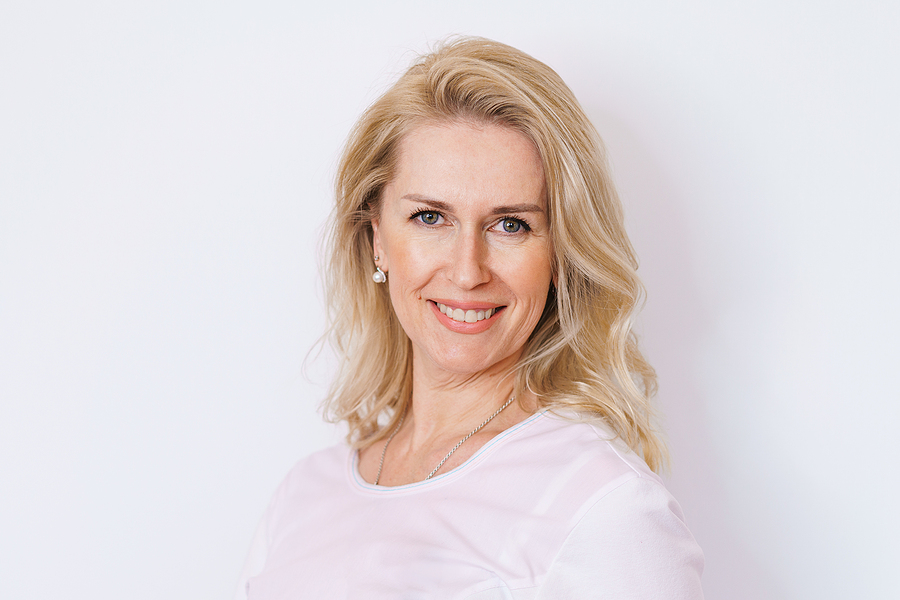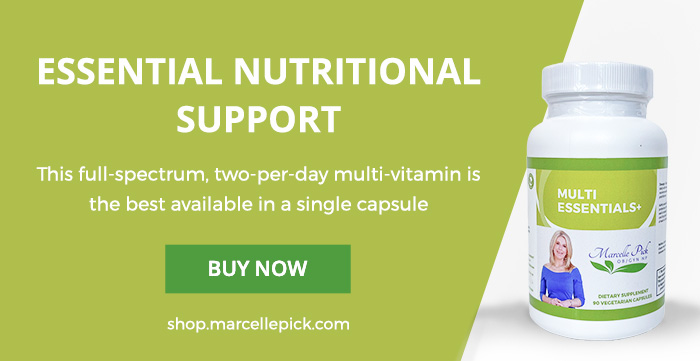Updated 06/25/2023
When I told Maria that I thought we needed to test her testosterone levels, her response was, “Testosterone? Isn’t that only an issue for men!”
She’s not the first woman to look at me in confusion when I bring up testosterone. So many people think the way she did, assuming that testosterone levels are only a concern for men – but they couldn’t be more wrong!
The truth is, all sex hormones are relevant regardless of gender. Of course men and women need different levels of specific sex hormones for their bodies to function properly. Men have higher levels of testosterone, while women produce more estrogen and progesterone. But we all should produce at least a little of each, and the proper balance is essential for everyone.
In this article, I’ll talk about what testosterone does in women, what happens when levels are too low or too high, and some key tips for balancing this important androgen naturally.
What is the function of testosterone in women?
Testosterone is produced in the ovaries, with a small amount produced by the adrenal glands. Fat cells and skin cells also produce testosterone in women. Women typically produce 10 to 20 times less testosterone than men. But that doesn’t make it any less important.
Testosterone, along with other androgens, has an impact on bone health, breast health, fertility, libido, and much more. Testosterone is also an important piece of the hormonal puzzle that affects mood and keeps many body systems functioning at an optimal level.
Additionally, testosterone promotes healthy cognitive function. Guidelines based on research and published in the Journal of Clinical Endocrinology & Metabolism in 2014 discuss the protective role testosterone has on brain function in women.
Many health conditions have been associated with changes to testosterone levels, including obesity, type 2 diabetes, cardiovascular problems, and metabolic syndrome.
What happens when you have too little testosterone?
Just as with other sex hormones, testosterone production rises in puberty and continues at this level throughout early adulthood. Levels decrease as we age but, unlike estrogen, there is not a sharp drop during menopause.
Some women, however, end up with levels that are too low, which can lead to low sex drive, fatigue, changes to breast tissue, fertility issues, irregular periods, vaginal dryness and increased risk of bone loss, osteoporosis and fractures.
What happens when you have too much testosterone?
In women, testosterone is typically easily converted to estrogen. Sometimes, however, the body produces too much testosterone or other androgens, making it difficult for this conversion to happen. This can lead to an abnormally high level of testosterone for some women.
When testosterone levels are too high, certain “male” characteristics, such as facial hair, acne and male pattern baldness, can result.
High levels of testosterone can be seen in PCOS, which comes with a range of symptoms including infertility, irregular periods, ovarian cysts, excess hair growth, and other skin problems.
Additional health concerns that can result from too much testosterone include acne, insulin resistance, obesity, diabetes, heart disease, high blood pressure and high cholesterol.
Tips for Balancing Testosterone Naturally
Hormones are all quite similar in terms of what impacts proper balance, so many of these tips may sound familiar. However, these suggestions bear repeating since some of them have been shown to directly influence testosterone levels. While much of the human research on testosterone is conducted in men, I believe these tips are just as effective for women when working towards hormonal balance.
Get plenty of exercise
Regular exercise is a crucial component to a healthy lifestyle. Research has also shown that exercise can boost testosterone. The results of one study in obese men suggested that increasing physical activity was more beneficial than a weight loss diet in increasing testosterone levels.
While any type of increased physical activity is likely to have some impact, weight training has been shown to be most effective for both short and long-term increases to testosterone. High Intensity Interval Training (HIIT) has also been demonstrated to have a positive impact on testosterone levels.
But not too much!
Eat to promote balanced hormones
I can’t talk about natural ways to balance hormones without talking about the way that you eat. All hormones are impacted by the food you choose to put into your body; testosterone is no exception.
A well-balanced diet that includes healthy fats, carbohydrates and protein is the best option for achieving balance. Stick to whole foods as often as possible, and avoid processed foods that contain chemicals that wreak havoc on your hormonal balance.
How much you eat, and when, also matters. Yo-yo dieting and overeating can both impact testosterone levels, so it’s best to have a good long term eating strategy. Work towards building habits that are sustainable for a lifetime, instead of relying on fad diets to manage your weight.
Some foods, such as soy, mint, licorice root, processed foods, vegetable oil, flaxseed, nuts and alcohol, are known to decrease testosterone production. If you already have lower levels, it’s important to avoid these foods.
If, on the other hand, your levels are too high, you can eat more of some of these foods – but continue avoiding processed foods, since they cause so many other health problems.
Reduce stress/cortisol levels
Cortisol is a “stress hormone” that impacts all other hormone production. When cortisol levels are high due to chronic stress, production of hormones that aren’t vital to survival slows down. When this goes on too long, imbalances become the norm.
Stress reduction is a personal thing; what works for you might not work for someone else. The key is to find things that allow you to truly let go and enjoy the moment you are in. Meditation, yoga, dancing, writing, walking in the woods, creating a piece of artwork, or sitting quietly with a cup of tea are all great possibilities. But they certainly aren’t the only ones!
Sit in the Sun
You’ve probably heard about how important Vitamin D is. Research has detailed the many benefits of having enough of this essential vitamin – and what can happen when you are deficient. One thing you may not know, however, is that Vitamin D has also been shown to boost testosterone naturally. In fact, one study found that 3,000 IU of vitamin D3 daily led to a 25% increase in testosterone.
Supplements are a good way to increase Vitamin D levels, but I also recommend getting outside in natural sunlight, without sunscreen, for at least 15 minutes per day.
Try plant-based remedies
Whether high or low, there are some plants and herbs that can help balance out testosterone. These can be taken as supplements, made into tea, or added to recipes.
Some herbs which reduce testosterone include chasteberry, black cohosh, reishi mushrooms, saw palmetto and white peony.
To boost testosterone, try ashwagandha, ginger, horny goat weed, mucuna pruriens, shilajit and tongkat ali. All of these have been studied for their impact on low testosterone, primarily in animals or humans with infertility.
Make healthy lifestyle choices
Obviously, no one strives to make unhealthy choices. But it’s worth mentioning a few lifestyle choices that have a specific impact on testosterone levels.
High-quality sleep is important for a lot of reasons, including cognitive functioning, physical functioning, cardiovascular health, and metabolism. But studies have shown that lack of sleep results in a significant reduction in testosterone, and that each additional hour of sleep could raise levels by an average of 15%. That’s a great reason to get more sleep if your testosterone levels are low. Strive for at least 7 hours of quality sleep each night. Eight is even better!
Be conscious of the products you choose, and avoid those that contain estrogen mimicking compounds, such as BPA and parabens. It’s also important to understand potential side effects of any prescription medications you are taking.
A high-quality multivitamin goes a long way towards keeping hormones properly balanced. I recommend making this a part of your daily regimen.
Maintaining a healthy weight is an important factor in keeping hormone levels, including testosterone, naturally balanced.
Hormonal balance is the foundation of good health
I tested Maria’s testosterone, and sure enough, it was too low. No wonder she was so tired, had irregular periods and no sex drive! Like so many women,Maria was well aware of the importance of balancing estrogen levels as she aged, but had never considered testosterone in the equation. She discovered that all hormones need to be balanced so she could feel her best. She tried some of these tips, and soon her testosterone was back at an appropriate level. She finally felt good again – and her sex drive returned, so her relationship improved too! Working with your healthcare provider to test levels and address imbalances can help you regain health and vitality, just like Maria did. You deserve nothing less!
Resources:
https://www.medicalnewstoday.com/articles/322508
https://www.everydayhealth.com/testosterone/womens-health/
https://www.healthline.com/nutrition/foods-that-lower-testosterone#TOC_TITLE_HDR_9
https://www.healthline.com/nutrition/8-ways-to-boost-testosterone#Why-Do-Testosterone-Levels-Matter?
https://www.healthline.com/health/womens-health/do-women-have-testosterone#bottom-line








